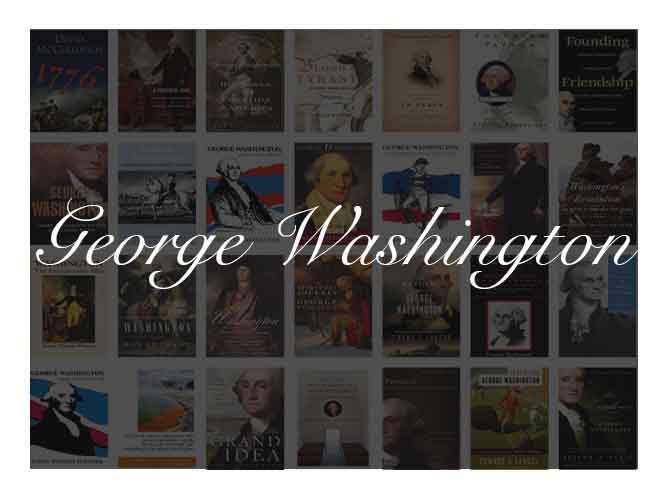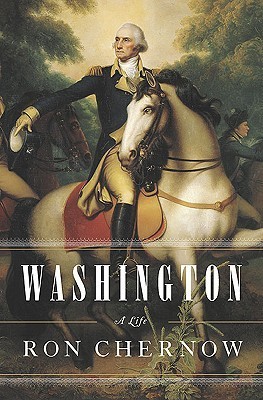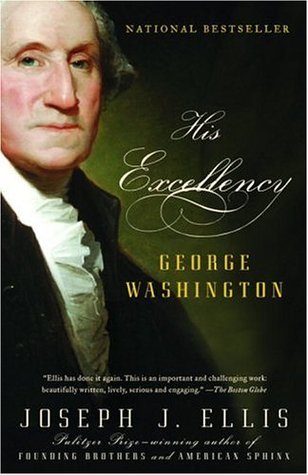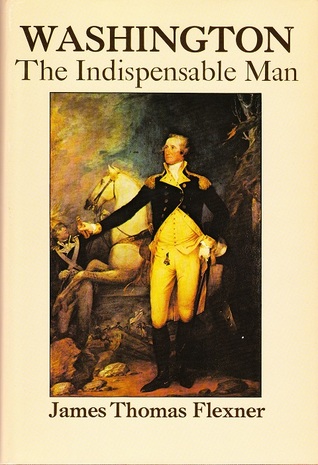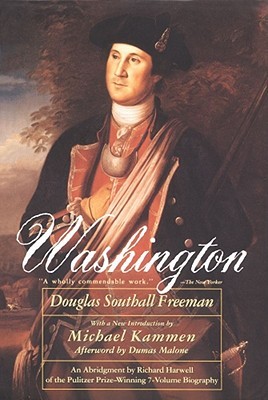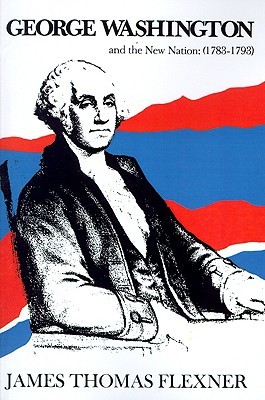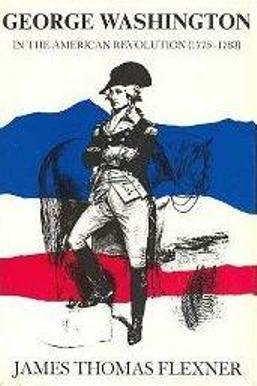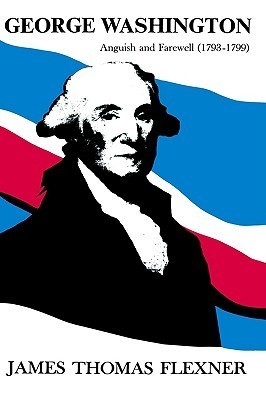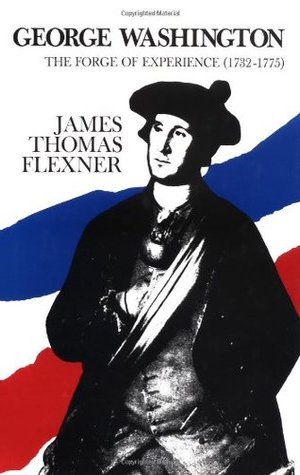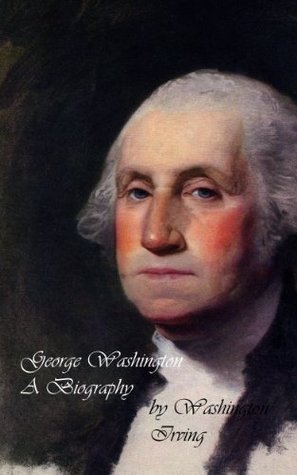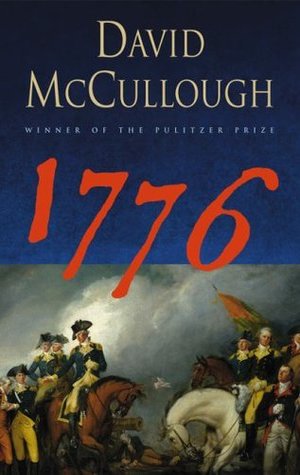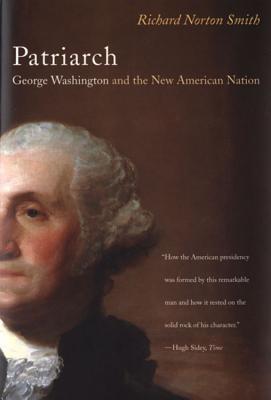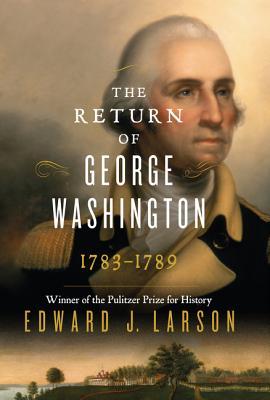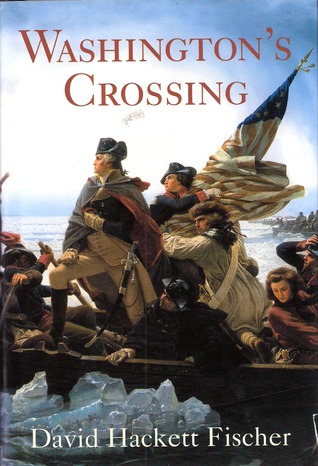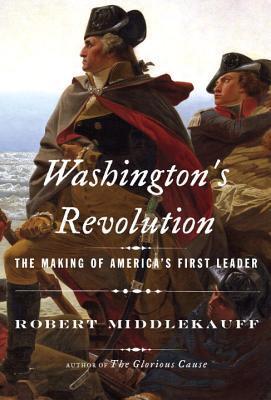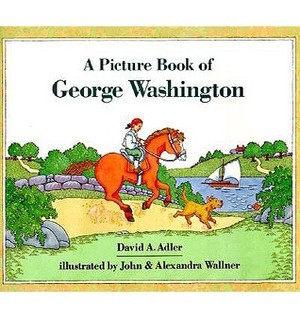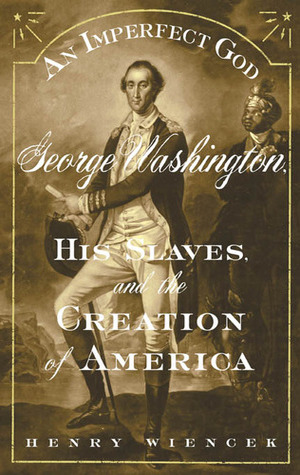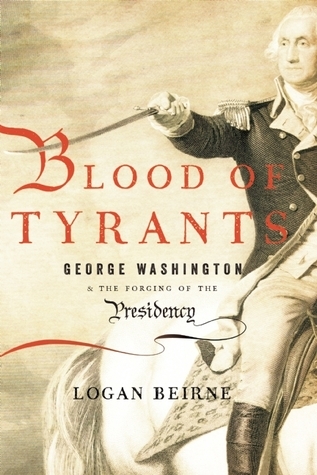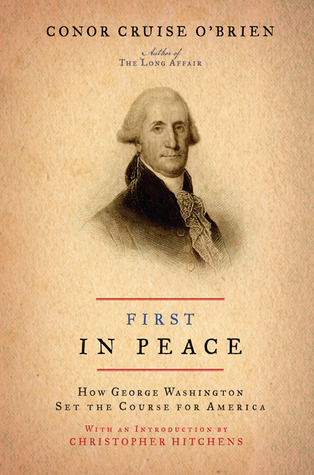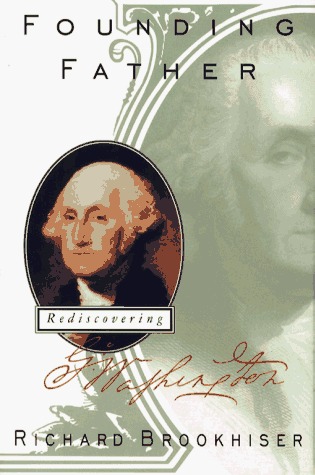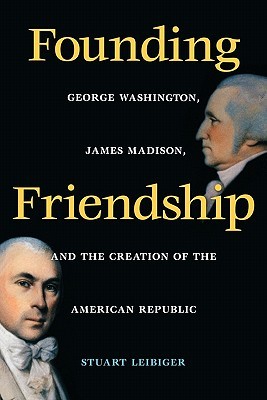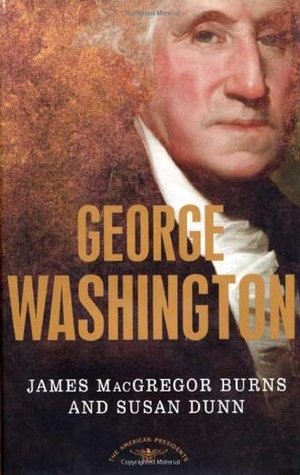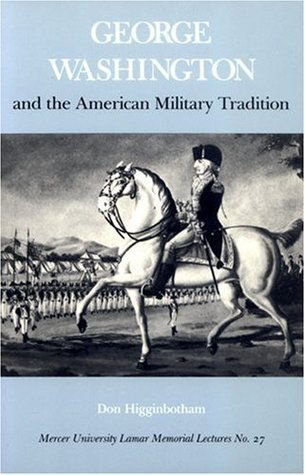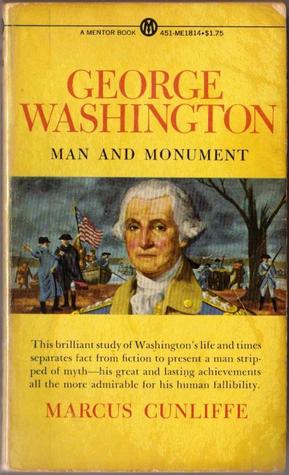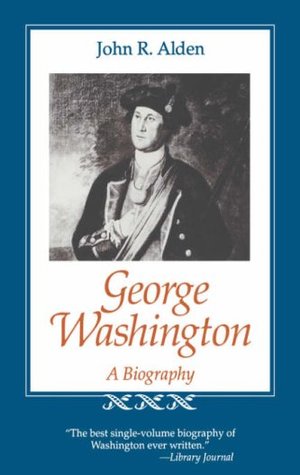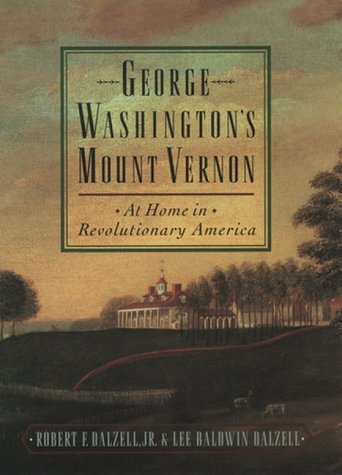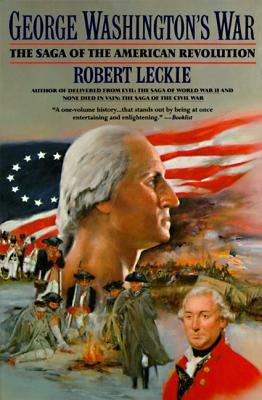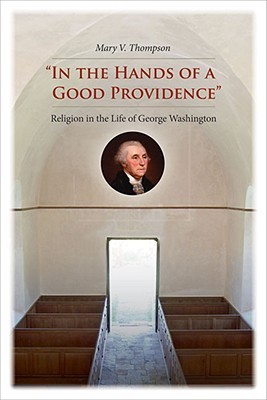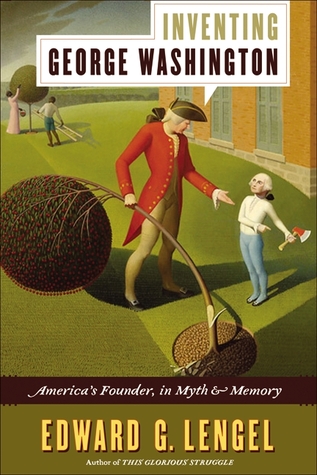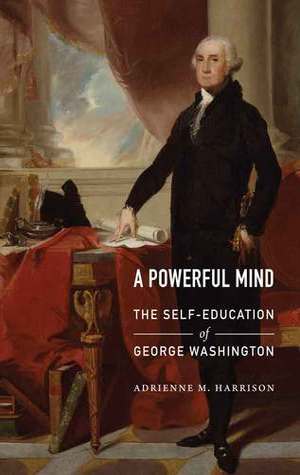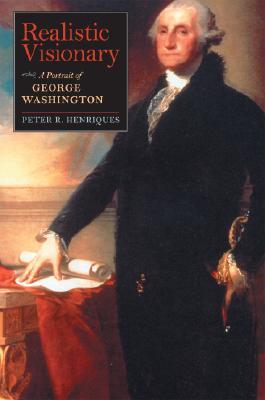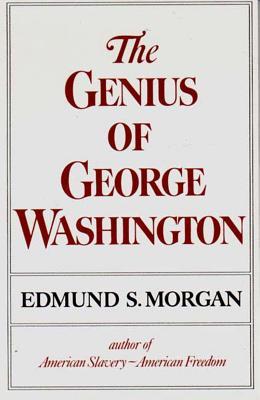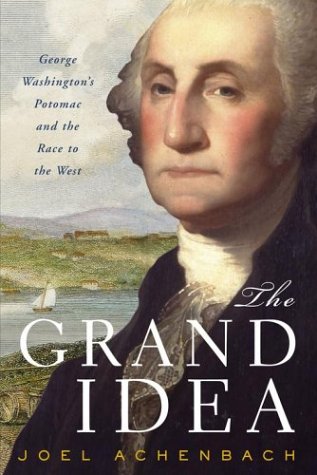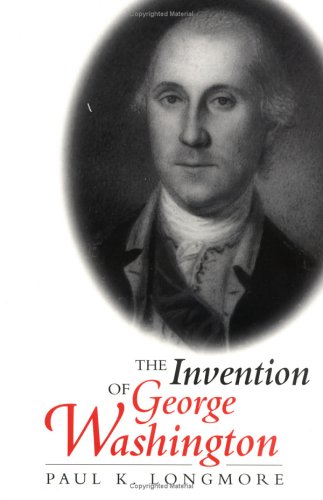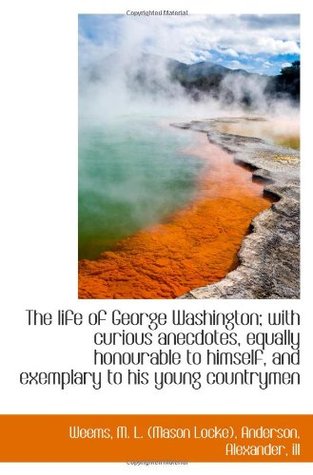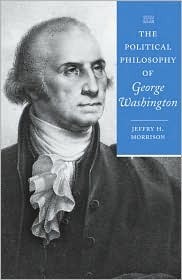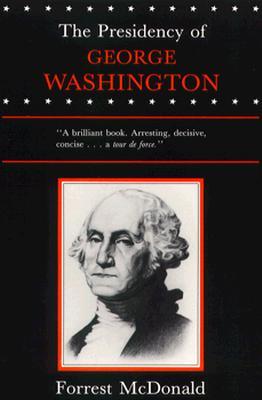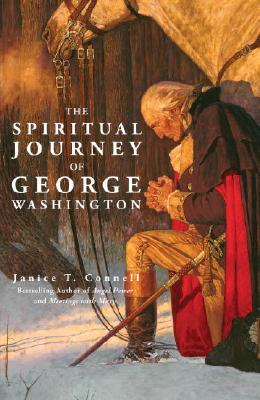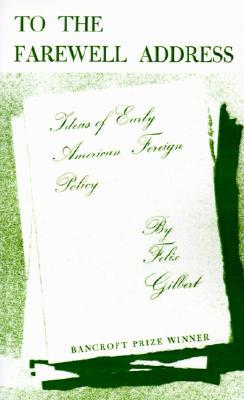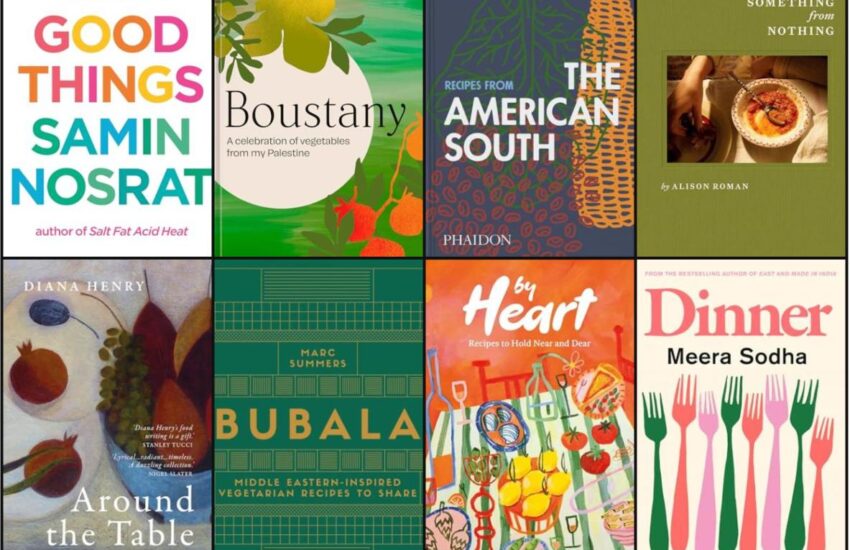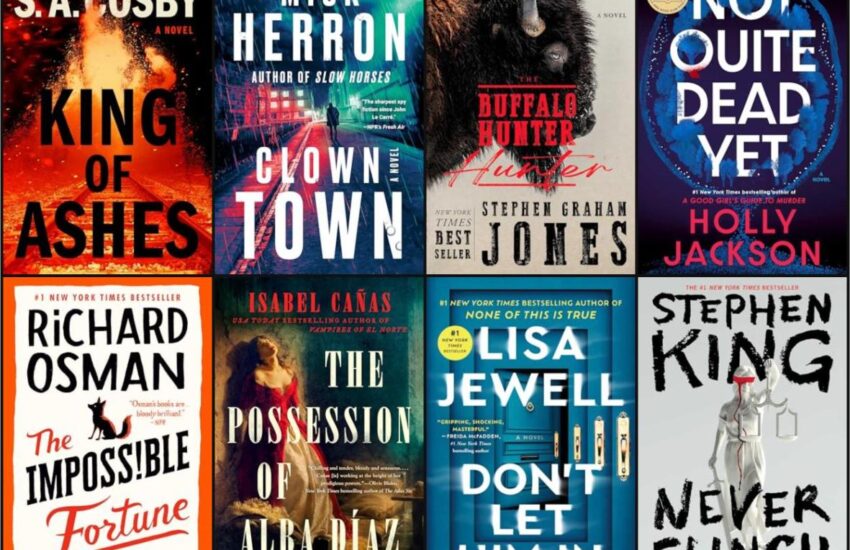The Best Books To Learn About President George Washington
(You can view the rest of our presidential Best Book lists by going to our Best US President Books page, or for a more in-depth look at how we found and ranked the books you can visit our Best Book About Every United States President article.)
George Washington Quick Facts |
| President Number | 1 |
| Terms In Office | 2 |
| Years | 1789-1797 |
| Political Party | Nonpartisan |
| Vice President | John Adams |
| Home State | Virginia |
| Slaves Owned | 318 |
| Presidential Pet | Donkey |
| Articles Used in Ranking | 16 |
| Number of Unique Books | 40 |
The Best Book About George Washington
(Appears on 9 Lists)
Washington: A Life by Ron Chernow
- Best Presidential Bios
- Christian Science Monitor
- Library of Congress
- Mandi Lindner
- Mashable
- Patheos
- Presidents USA
- Signature
- The Washington Post
Celebrated biographer Ron Chernow provides a richly nuanced portrait of the father of our nation and the first president of the United States. With a breadth and depth matched by no other one volume biography of George Washington, this crisply paced narrative carries the reader through his adventurous early years, his heroic exploits with the Continental Army during the Revolutionary War, his presiding over the Constitutional Convention, and his magnificent performance as America’s first president. In this groundbreaking work, based on massive research, Chernow shatters forever the stereotype of George Washington as a stolid, unemotional figure and brings to vivid life a dashing, passionate man of fiery opinions and many moods.
#2 Book
(Appears on 8 Lists)
His Excellency: George Washington by Joseph J. Ellis
- At Times Dull
- Best Presidential Bios
- Christian Science Monitor
- Library of Congress
- Presidential History
- Presidential History
- Signature
- The Washington Post
To this landmark biography of our first president, Joseph J. Ellis brings the exacting scholarship, shrewd analysis, and lyric prose that have made him one of the premier historians of the Revolutionary era. Training his lens on a figure who sometimes seems as remote as his effigy on Mount Rushmore, Ellis assesses George Washington as a military and political leader and a man whose “statue-like solidity” concealed volcanic energies and emotions.
#3 Book
(Appears on 5 Lists)
Washington: The Indispensable Man by James Flexner
- Best Presidential Bios
- Christian Science Monitor
- Library of Congress
- Presidents USA
- Signature
After more than two decades, this dramatic and concise single-volume distillation of James Thomas Flexner’s definitive four-volume biography “George Washington,” which received a Pulitzer Prize citation and a National Book Award for the fourth volume, has itself become an American classic. Now in a new trade paperback edition, this masterful work explores the Father of Our Country – sometimes an unpopular hero, a man of great contradictions, but always a towering historical figure, who remains, as Flexner writes in these pages, “a fallible human being made of flesh and blood and spirit – not a statue of marble and wood… a great and good man.” The author unflinchingly paints a portrait of Washington: slave owner, brave leader, man of passion, reluctant politician, and fierce general. His complex character and career are neither glorified nor vilified here; rather, Flexner sets up a brilliant counterpoint between Washington’s public and private lives and gives us a challenging look at the man who has become as much a national symbol as the American flag.
#4-9 Books
(Appear on 3 Lists Each)
Washington by Douglas Southall Freeman
- Best Presidential Bios
- Five Books
- Library of Congress
Washington is the most complete, definitive one-volume biography of George Washington ever written. In 1948 renowned biographer and military historian Douglas Southall Freeman won his second Pulitzer Prize for his new and dramatic reexamination of George Washington. For years biographies had gone from idolatry to muckraking in their depictions of this somewhat marbleized Founding Father. Freeman’s new interpretation was a fresh step, making Washington a living, breathing individual, flawed but heroic. An able commander who defeated the British Empire against incredible odds, Washington proved to be just as adept at wielding political power, and adroitly steered our new loosely called nation through the first stormy years of our unproven federal stewardship and the first two presidential administrations.
George Washington and the New Nation 1783-1793 by James Flexner
- Best Presidential Bios
- Library of Congress
- The Tailored Man
This book begins with Washington’s return to Mount Vernon, a victorious, but exhausted soldier eagerly seeking the pleasures of a quiet country life. Free of heavy responsibilities, his character expands in genial, often unexpected ways. All too soon, however, the idyll is broken. This promises to be the biography of Washington that will best serve our generation.
George Washington in the American Revolution 1775-1783 by James Flexner
- Best Presidential Bios
- Library of Congress
- The Tailored Man
History has blinded us to the all-too-human character of George Washington; in doing so, it has blinded us to the true nature of his greatness. We have urgent need to know this man we call the Father of Our Country. And now, at last, James Thomas Flexner has given us the biography that fully meets our need.
George Washington: Anguish and Farewell 1793-1799 by James Flexner
- Best Presidential Bios
- Library of Congress
- The Tailored Man
History has blinded us to the all-too-human character of George Washington; in doing so, it has blinded us to the true nature of his greatness. We have urgent need to know this man we call the Father of Our Country. And now, at last, James Thomas Flexner has given us the biography that fully meets our need.
George Washington: The Forge of Experience 1732-1775 by James Flexner
- Best Presidential Bios
- Library of Congress
- The Tailored Man
This volume tells about considerably more than half George Washington’s life, the forty-three years that elapsed from his birth to his acceptance, at the outbreak of the American Revolution, of the command of the Continental Army.
George Washington: A Biography by Washington Irving
- Best Presidential Bios
- Library of Congress
- SOURCE
Washington Irving’s Life of George Washington (published in five volumes in 1856–59) was the product of his last years and remains his most personal work. Christened with the name of the great general, Irving was blessed by Washington while still a boy of seven, and later came to know many of the prominent figures of the Revolution. In these pages he describes them using firsthand source material and observation. The result is a book which is fascinating not only for its subject (the American Revolution), but also for how it reveals in illuminating detail the personality and humanity of a now remote, towering icon. Here is an intimate portrait of Washington the man, from Virginia youth to colonial commander to commander-in-chief of the patriot army to first president and great guiding force of the American federation. But one cannot read Irving’s Life without marveling at the supreme art behind it, for his biography is foremost a work of literature. Charles Neider’s abridgment and editing of Irving’s long out-of-print classic has created a literary work comparable in importance and elegance to the original. George Washington, A Biography, Neider’s title for his edition of Irving’s Life, makes the work accessible to modern audiences. The extensive introduction provides a detailed analysis of Irving’s life and times, and the difficulties he faced as he worked against his own failing health to finish what he felt was his masterpiece. This new edition of the superb biography of America’s first citizen by America’s first literary artist remains as fresh and unique today as when it was penned.
#10-14
(Appear on 2 Lists Each)
1776 by David McCullough
- Christian Science Monitor
- Signature
America’s beloved and distinguished historian presents, in a book of breathtaking excitement, drama, and narrative force, the stirring story of the year of our nation’s birth, 1776, interweaving, on both sides of the Atlantic, the actions and decisions that led Great Britain to undertake a war against her rebellious colonial subjects and that placed America’s survival in the hands of George Washington.
Patriarch: George Washington and the New American Nation by Richard Norton Smith
- Best Presidential Bios
- Library of Congress
A dramatic portrait of George Washington’s presidential years, Patriarch is a gripping story of politics and statecraft. Smith describes Washington’s struggle to preside over the bitter feud between Jefferson and Hamilton–two brilliant members of his cabinet–while attempting to distinguish the first presidency.
The Return of George Washington: 1783-1789 by Edward Larson
- Presidential History
- Presidents USA
Pulitzer Prize-winning historian Edward J. Larson recovers a crucially important—yet almost always overlooked—chapter of George Washington’s life, revealing how Washington saved the United States by coming out of retirement to lead the Constitutional Convention and serve as our first president.
Washington’s Crossing by David Hackett Fischer
- Library of Congress
- Patheos
Six months after the Declaration of Independence, the American Revolution was all but lost. A powerful British force had routed the Americans at New York, occupied three colonies, and advanced within sight of Philadelphia.
Washington’s Revolution: The Making of America’s First Leader by Robert Middlekauff
- Presidents USA
- Presidential History
Focusing on Washington’s early years, Robert Middlekauff penetrates his mystique, revealing his all-too-human fears, values, and passions. Rich in psychological detail regarding Washington’s temperament, idiosyncrasies, and experiences, this book shows a self-conscious Washington who grew in confidence and experience as a young soldier, businessman, and Virginia gentleman, and who was transformed into a patriot by the revolutionary ferment of the 1760s and ’70s. Taking command of an army in constant dire need—of adequate food, weapons, and, at times, even clothing and shoes—Washington displayed incredible persistence and resourcefulness, growing into a leader who both understood and defined the crucial role of the army in the formation of a new American society.
#15-40 Book
(Appear on a Single List)
A Picture Book of George Washington by David A. Adler
- Christian Science Monitor
A simple presentation of his character and the major events of his life.
An Imperfect God: George Washington, His Slaves, and the Creation of America by Henry Wiencek
- Library of Congress
When George Washington wrote his will, he made the startling decision to set his slaves free; earlier he had said that holding slaves was his “only unavoidable subject of regret.” In this groundbreaking work, Henry Wiencek explores the founding father’s engagement with slavery at every stage of his life–as a Virginia planter, soldier, politician, president and statesman.
Blood of Tyrants: George Washington & the Forging of the Presidency by Logan Beirne
- Presidents USA
Blood of Tyrants reveals the surprising details of our Founding Fathers’ approach to government and this history’s impact on today. Delving into the forgotten—and often lurid—facts of the Revolutionary War, Logan Beirne focuses on the nation’s first commander in chief, George Washington, as he shaped the very meaning of the United States Constitution in the heat of battle.
First In Peace: How George Washington Set the Course for America by Conor Cruise O’Brien
- Presidents USA
First in Peace considers the dissension between Washington and Jefferson during the first U.S. presidency, and reveals Washington’s clear-sighted political wisdom while exposing Jefferson’s dangerous ideology. Cruise O’Brien makes the case that Washington, not Jefferson, was the true democrat, and commends his clarity of vision in restoring good relations with Britain, his preference for order and pragmatism, and his aversion to French political extremism.
Founding Father: Rediscovering George Washington by Richard Brookhiser
- Presidents USA
In this thought-provoking look at George Washington as soldier and statesman, Richard Brookhiser traces the astonishing achievements of Washington’s career and illuminates how his character and his values shaped the beginnings of American politics.
Founding Friendship: George Washington, James Madison, and the Creation of the American Republic by Stuart Eric Leibiger
- Library of Congress
Although the friendship between George Washington and James Madison was eclipsed in the early 1790s by the alliances of Madison with Jefferson and Washington with Hamilton, their collaboration remains central to the constitutional revolution that launched the American experiment in republican government. Washington relied heavily on Madison’s advice, pen, and legislative skill, while Madison found Washington’s prestige indispensable for achieving his goals for the new nation. Together, Stuart Leibiger argues, Washington and Madison struggled to conceptualize a political framework that would respond to the majority without violating minority rights. Stubbornly refusing to sacrifice either of these objectives, they cooperated in helping to build and implement a powerful, extremely republican constitution.
George Washington by James MacGregor Burns and Susan Dunn
- All The Presidents Books
As Washington sought to interpret the Constitution’s assignment of powers to the executive branch and to establish precedent for future leaders, he relied on his key advisers and looked to form consensus as the guiding principle of government. His is a legacy of a successful experiment in collective leadership, great initiatives in establishing a strong executive branch, and the formulation of innovative and lasting economic and foreign policies. James MacGregor Burns and Susan Dunn also trace the arc of Washington’s increasing dissatisfaction with public life and the seeds of dissent and political parties that, ironically, grew from his insistence on consensus. In this compelling and balanced biography, Burns and Dunn give us a rich portrait of the man behind the carefully crafted mythology.
George Washington and the American Military Tradition by Don Higginbotham
- Library of Congress
In George Washington and the American Military Tradition, Don Higginbotham investigates the interplay of militiaman and professional soldier, of soldier and legislator, that shaped George Washington’s military career and ultimately fostered the victory that brought independence to our nation. Higginbotham then explores the legacy of Washington’s success, revealing that the crucial blending of civil and military concerns characteristic of the Revolution has been variously regarded and only seldom repeated by later generations of American soldiers.
George Washington, Man and Monument by Marcus Cunliffe
- Library of Congress
Step-by-step, Marcus Cunliffe traces the ancestral background, the childhood, the growth, the failures and achievements of George Washington. He shows readers a real person–fallible, ambitious, impatient of criticism–providing a portrait of one of America’s greatest leaders.
George Washington: A Biography by John R. Alden
- Library of Congress
In George Washington, John R. Alden traces the interwoven histories of Washington and the nation he helped to create, defend, and guide toward the future. Alden recreates the major events of Washington’s personal and professional life, including his boyhood in rural Virginia, his early careers as a surveyor and then a soldier in the French and Indian War, and his staid but enduring marriage. The core of the biography is devoted to Washington’s leadership roles-his assumption of the post of commander in chief of the Continental Army, his part in the Constitutional Convention, and his presidency.
George Washington: A Life by Willard Sterne Randall
- Library of Congress
George Washington is the human story of a man who turned an impoverished childhood and the frequent humiliations at the hands of a mother he feared and the British generals he admired into a career of rebellion and creation. When he had worn out and nearly bankrupted his allies, Washington disbanded the victorious army he had forged, giving life to democratic government. George III once said that if Washington could give up power, he would be the greatest man of the eighteenth century. And Washington did. Twice. Here, from award-winning historian Willard Sterne Randall, is the human story of America’s Founding Father.
George Washington’s Mount Vernon: At Home in Revolutionary America by Robert F. Dalzell and Lee Brown Dalzell
- Library of Congress
Here we meet the planter/patriot who also genuinely loved building, a man passionately human in his desire to impress on his physical surroundings the stamp of his character and personal beliefs. As chief architect and planner of the countless changes made at Mount Vernon over the years, Washington began by imitating accepted models of fashionable taste, but as time passed he increasingly followed his own ideas. Hence, architecturally, as the authors show, Mount Vernon blends the orthodox and the innovative in surprising ways, just as the new American nation would. Equally interesting is the light the book sheds on the process of building at Mount Vernon, and on the people–slave and free–who did the work. Washington was a demanding master, and in their determination to preserve their own independence his workers often clashed with him. Yet, as the Dalzells argue, that experience played a vital role in shaping his hopes for the future of American society–hope that embraced in full measure the promise of the revolution in which he had led his fellow citizens.
George Washington’s War: The Saga of the American Revolution by Robert Leckie
- Presidents USA
In the Hands of a Good Providence: Religion in the Life of George Washington by Mary Thompson
- Patheos
Attempts by evangelical Christians to claim Washington and other founders as their own, and scholars’ ongoing attempts to contradict these claims, are nothing new. Particularly after Washington was no longer around to refute them, legends of his Baptist baptism or secret conversion to Catholicism began to proliferate. Mount Vernon researcher Mary Thompson endeavors to get beyond the current preoccupation with whether Washington and other founders were or were not evangelical Christians to ask what place religion had in their lives. Thompson follows Washington and his family over several generations, situating her inquiry in the context of new work on the place of religion in colonial and postrevolutionary Virginia and the Chesapeake.
Inventing George Washington: America’s Founder, in Myth and Memory by Edward Lengel
- Patheos
Editor-in-Chief of the Washington Papers Project Edward G. Lengel delivers an entertaining and erudite history of America’s Founding Father. In Inventing George Washington, a captivating counterpart to Lengel’s General George Washington: A Military Life, the historian looks at Washington’s life and writings, at the creation of his mythos, and at what his legacy means for our nation and ourselves.
Powerful Mind: The Self-Education of George Washington by Adrienne Harrison
- Presidential History
His formal schooling abruptly cut off at age eleven, George Washington saw his boyhood dream of joining the British army evaporate and recognized that even his aspiration to rise in colonial Virginian agricultural society would be difficult. Throughout his life he faced challenges for which he lacked the academic foundations shared by his more highly educated contemporaries. Yet Washington’s legacy is clearly not one of failure.
Realistic Visionary: A Portrait of George Washington by Peter R. Henriques
- Library of Congress
A focused and concise biography, Realistic Visionary re-examines the keys moments and themes of George Washington’s life to present a more vivid portrait of the man himself, combining his attributes as a general, a politician as well as a citizen. Drawing on unparalleled access to Washington’s own papers, letters and diaries, Professor Peter Henriques profiles the events that shaped Washington’s life and career. In addition, he shows how several leading historical figures, including Washington’s wife, Martha, Thomas Jefferson, Alexander Hamilton and more impacted Washington’s direction in life. Tracking America’s first president through his final days, Realistic Visionary tells the story of a man dedicated to public service who was able to do so while satisfying his own incredible sense of personal ambition.
The Ascent of George Washington by John Ferling
- Best Presidential Bios
Perhaps the most revered American of all, George Washington has long been considered a stoic leader who held himself above the fray of political infighting. What has gone unnoticed about the much-researched life of Washington is that he was in fact a consummate politician, as historian John Ferling shows in this revealing and provocative new book. As leader of the Continental Army, Washington’s keen political savvy enabled him not only to outwit superior British forces, but–even more challenging–to manage the fractious and intrusive Continental Congress. Despite dire setbacks early in the war, Washington deftly outmaneuvered rival generals and defused dissent from officers below him, ending the war with the status of a national icon. His carefully burnished reputation allowed Washington, as president, to lead the country under the guise of non-partisanship for almost all of his eight years in office. Washington, Ferling argues, was not only one of America’s most adroit politicians, he was easily the most successful of all time–so successful, in fact, that he is no longer thought of as having been political.
The Genius of George Washington by Edmund S. Morgan
- Library of Congress
In this book Edmund S. Morgan pushes past the image to find the man. He argues that Washington’s genius lay in his understanding of both military and political power. This understanding of power was unmatched by that of any of his contemporaries and showed itself at the simplest level in the ability to take command. Drawing on Washington’s letters to his colleagues (many of which are included in this book), Morgan explores the particular genius of our first president and clearly demonstrates that Washington’s mastery of power allowed America to win the Revolutionary War and placed the new country on the way to achieving the international and domestic power that Washington himself had sought for it.
The Grand Idea: George Washington’s Potomac and the Race to the West by Joel Achenbach
- Library of Congress
The Grand Idea follows George Washington in the critical period immediately after the War of Independence. The general had great hopes for his young nation, but also grave fears. He worried that the United States was so fragmented politically and culturally that it would fall apart, and that the “West,” beyond the Appalachian mountains, would become a breakaway republic. So he came up with an ambitious scheme: He would transform the Potomac River into the nation’s premier commercial artery, binding East and West, bolstering domestic trade, and staving off disunion. This was no armchair notion. Washington saddled up and rode west on a 680-mile trek to the raucous frontier of America.
The Invention of George Washington by Paul K. Longmore
- Library of Congress
George Washington was the central actor in the great American drama of revolution and nation-founding. His image was an essential aspect of the role he played, but scholars have usually examined the life and the legend apart from one another. Paul Longmore here illuminates the relationship between the man, the myth, and the American people. In addition to a comprehensive look at Washington’s career, we are shown how he embodied the ideals of his age and made an effort to shape contemporary perceptions of him.
The Life of Washington by Mason Locke Weems
- Presidents USA
The Political Philosophy of George Washington by Jeffry Morrison
- Patheos
Though Washington left little explicit writing on political philosophy, Jeffry Morrison examines his key writings, actions, education, and political and professional lives. He finds that Washington held closely to a trinity of foundational principles―classical republicanism, British liberalism, and Protestant Christianity―with greater fidelity than many of the other founding fathers. In unearthing Washington’s ideological growth, Morrison reveals the intellectual heritage of his political thought and shows how these beliefs motivated him to action.
The Presidency of George Washington by Forrest McDonald
- Library of Congress
In this volume, Forrest McDonald admits that George Washington was no executive genius, and notes that a number of his advisers and cabinet members were considerably more important in formulating programs and policies than he was. Nevertheless, he maintains that, but for Washington, the office of president might not exist today. McDonald asserts that Washington’s reputation as a man of integrity, dignity, candor, and republican virtue was well-deserved, and that he contributed best by serving as a symbol.
The Spiritual Journey of George Washington by Janice T. Connell
- Presidents USA
To the Farewell Address: Ideas of Early American Foreign Policy by Felix Gilbert
- Library of Congress
Washington’s Farewell Address comprises various aspects of American political thinking. It reaches beyond any period limited in time and reveals the basic issue of the American attitude toward foreign policy: the tension between Idealism and Realism. Settled by men who looked for gain and by men who sought freedom, born into independence in a century of enlightened thinking and of power politics, America has wavered in her foreign policy between Idealism and Realism, and her great historical moments have occurred when both were combined. Thus the history of the Farwell Address forms only part of the wider, endless, urgent problem. Felix Gilbert analyzes the diverse intellectual trends which went into the making of the Farwell Address, and sheds light on its beginnings.
| Source | Article |
| All The Presidents Books | One Through Forty-Two or Forty-Three |
| At Times Dull | Janet’s Presidential Biography Project & Blog |
| Best Presidential Bios | The Best Presidential Biographies |
| Christian Science Monitor | To celebrate Washington’s birthday: 5 best books about George Washington |
| Five Books | H W Brands recommends the best books on American Presidents |
| Huffington Post | Presidents’ Day History: The Must-Reads Of Presidential Biographies |
| Library of Congress | Selected Bibliography |
| Mandi Lindner | 44 Presidents and Their Definitive Biographies |
| Mashable | Why I’m spending a year reading about every U.S. president |
| Patheos | Five Great Books on George Washington |
| Presidential History | Presidential Resources |
| Presidential History (Again) | Pulitzer Prize Winning Books About Presidents |
| Presidents USA | FURTHER INFORMATION ABOUT GEORGE WASHINGTON |
| Signature | The 5 Best George Washington Biographies |
| The Tailored Man | The 44 Best Presidential Biographies |
| The Washington Post | The Fix’s list of best presidential biographies |
